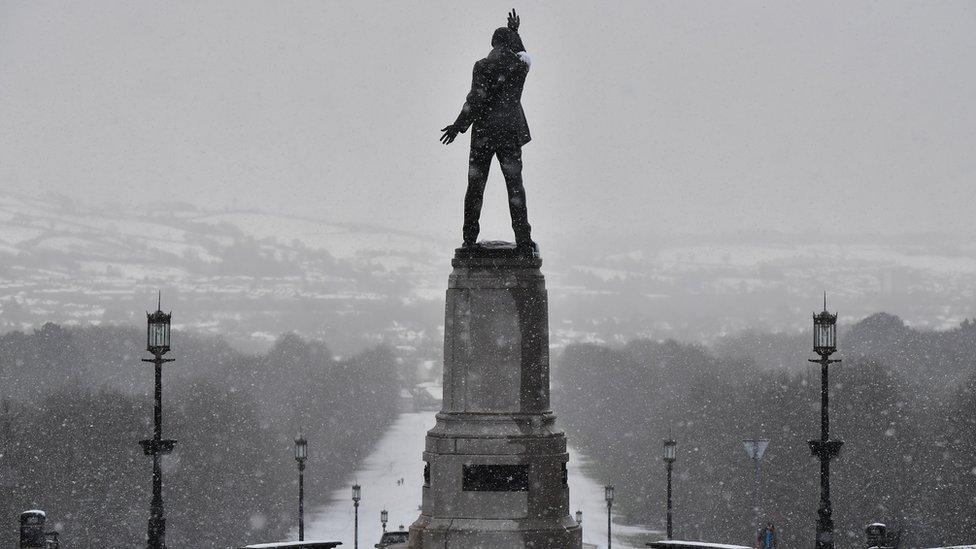Sunningdale: Former power-sharing minister 'saddened' by collapse
- Published
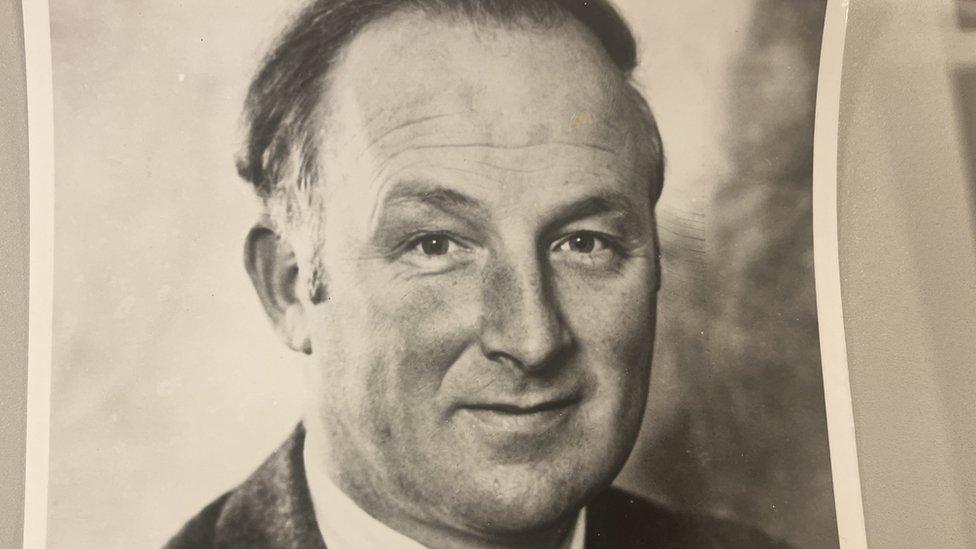
Leslie Morell was agriculture minister in the executive set up in 1974
The only surviving member of Northern Ireland's first power-sharing executive has said its collapse 50 years ago is still a source of deep sadness to him.
Leslie Morrell was agriculture minister in the administration, which was set up in January 1974.
It brought unionists and nationalists together in power at Stormont for the first time.
Mr Morrell believes the executive might still exist if the government had handled security differently.
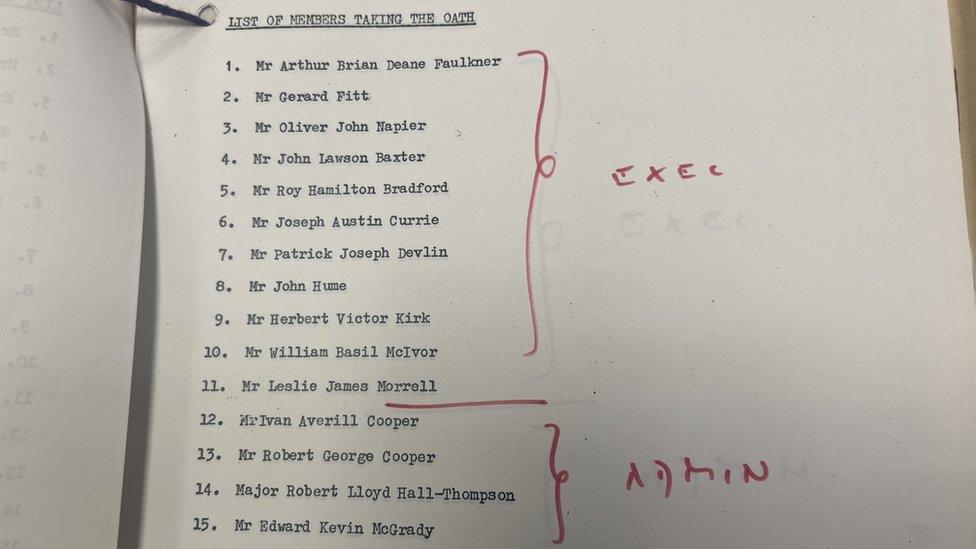
The administration, led by Ulster Unionist leader Brian Faulkner, lasted five months
The cross-party administration, formed after the Sunningdale Agreement in December 1973, was led by Ulster Unionist leader Brian Faulkner and had 11 ministers in total, including John Hume of the Social Democratic and Labour Party (SDLP).
However, it lasted only five months.
It collapsed in the face of opposition from unionists and loyalists who formed the Ulster Workers' Council (UWC) and called a general strike.
The IRA also opposed the Sunningdale agreement and continued its campaign of violence.
Mr Morrell, who was deputy leader of the Ulster Unionist Party, said it was a missed opportunity.
"I've a great deal of sadness," he told BBC News NI.
"The fall of the executive precipitated 25 years of bloodshed, murder, destruction."
He pointed out that 50 years on, there was still no political stability in Northern Ireland.
"The same principles which led to us setting up the executive are still important. If parties are to work together, they need to agree," he said.
"They cannot be forced into agreement by some bit of law. They have to have a personal sort of agreement. It took us weeks to achieve that and achieve a respect between the members of the parties."
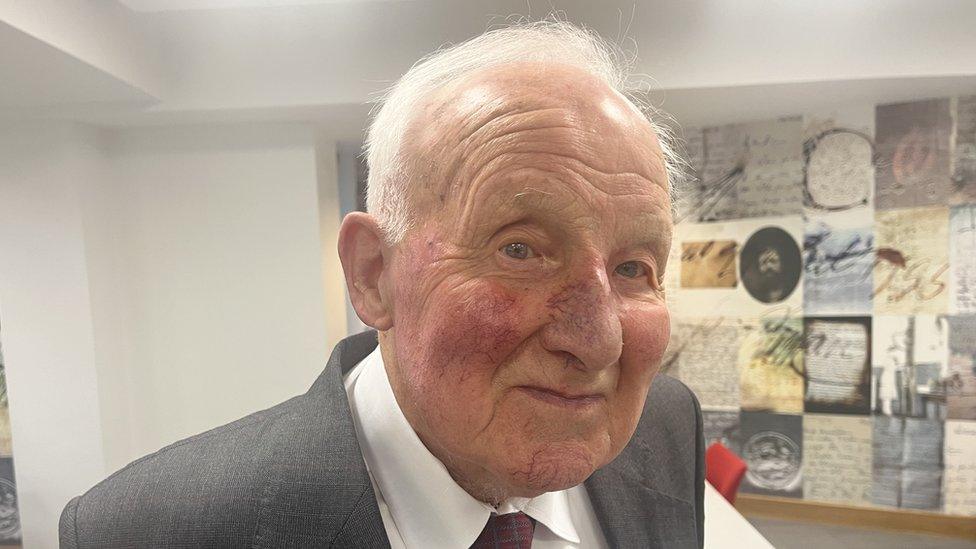
Leslie Morrell said the 1974 executive tried to make things work
Back in 1974, there were six unionists on the executive - Mr Faulkner, Mr Morrell, Basil McIvor, Roy Bradford, Herbert Kirk and John Baxter.
Representing the SDLP were leader Gerry Fitt, Mr Hume, Paddy Devlin and Austin Currie. The sole Alliance Party minister was their leader Oliver Napier.
"It was a very definite change," said Mr Morrell.
"Among the people who were sitting around that table were people who were regarded by some of the Protestant population as being enemies of the state."
He said ministers were able to concentrate on health, education, agriculture and the economy because constitutional issues had been dealt with the previous year.
"We were making it work - that is why we had to be stopped," he said.
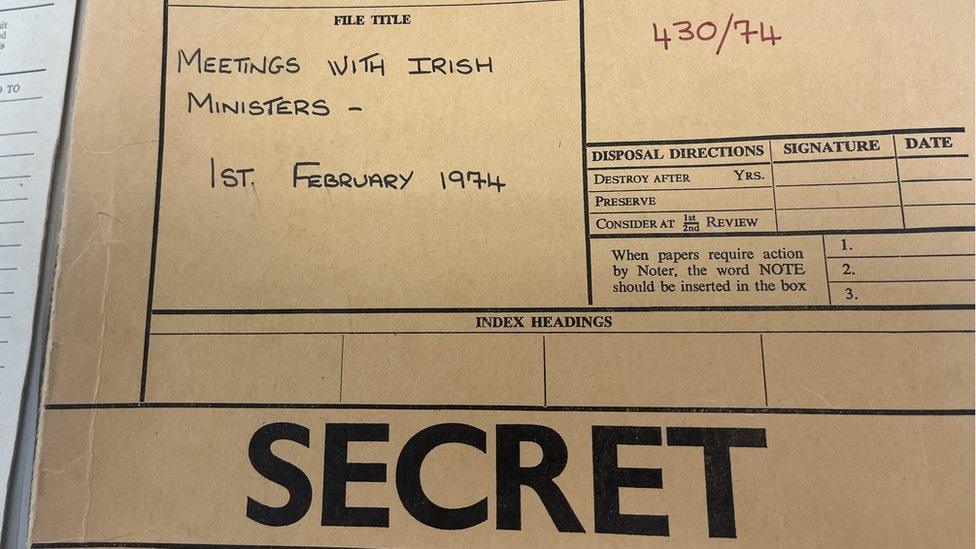
The executive held meetings with Irish ministers during its short existence
According to Mr Morrell, the loyalist workers who blocked roads did not have the support of the majority of unionists and should have been subjected to more robust action.
"What it required was action to clear the roads," he said.
If that had happened, he believes "the executive or its successors would still be there".
'Violent period of time'
Mr Faulkner and the other unionist ministers resigned in May 1974, bringing an end to the power-sharing experiment.
It was a violent period of time, with loyalist paramilitaries and the IRA both armed and active - Mr Morrell carried a gun for his own protection.
He was one of seven representatives from the Londonderry constituency, where John Hume topped the poll in the June 1973 ssembly election.
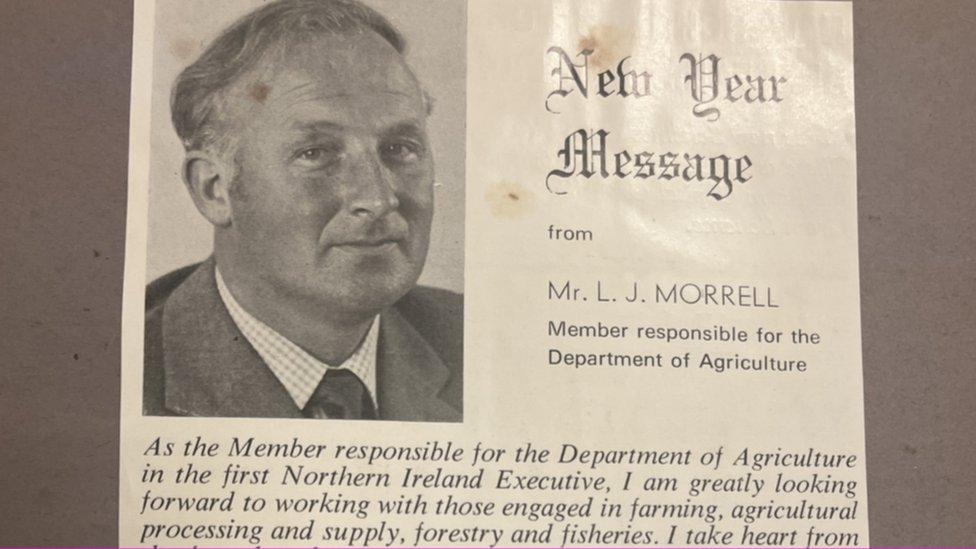
Mr Morrell was concerned he might not have the experience to be Agriculture Minister even though he was a farmer
Although it was five decades ago, Mr Morrell remembers the 1974 executive well.
He recalls being worried about his lack of ministerial experience, even though, as a farmer, he was comfortable with the agriculture brief.
Before his first time answering questions in the Stormont Assembly, he remembers the advice Brian Faulkner gave him: "If the questioner is a member of your own party, you give them an answer and satisfy them.
"If it's a member of another party, you tell them as little as possible."
At the Public Records Office of Northern Ireland, staff produced original files to BBC News NI from the 1974 executive plus official photographs taken of ministers, including Mr Morrell.
Looking at the pictures, he recalled the intensive negotiations at Stormont Castle in 1973 that led to the power-sharing executive, and a comment which he will never forget.
"Basil McIvor said going up the steps (to Stormont Castle): 'This will be the political end of some of us'," he said.
"He was right. But we had to try it."
- Published12 May 2022
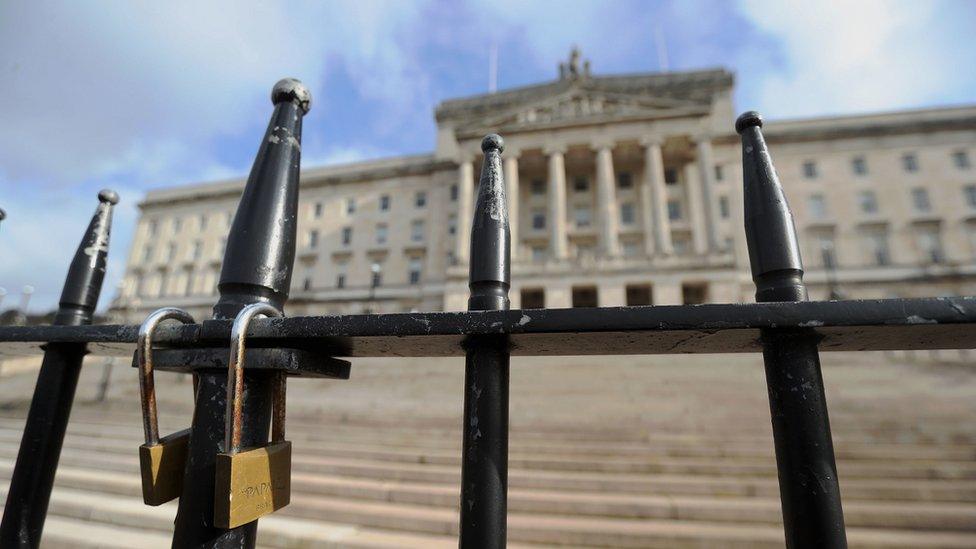
- Published9 July 2024
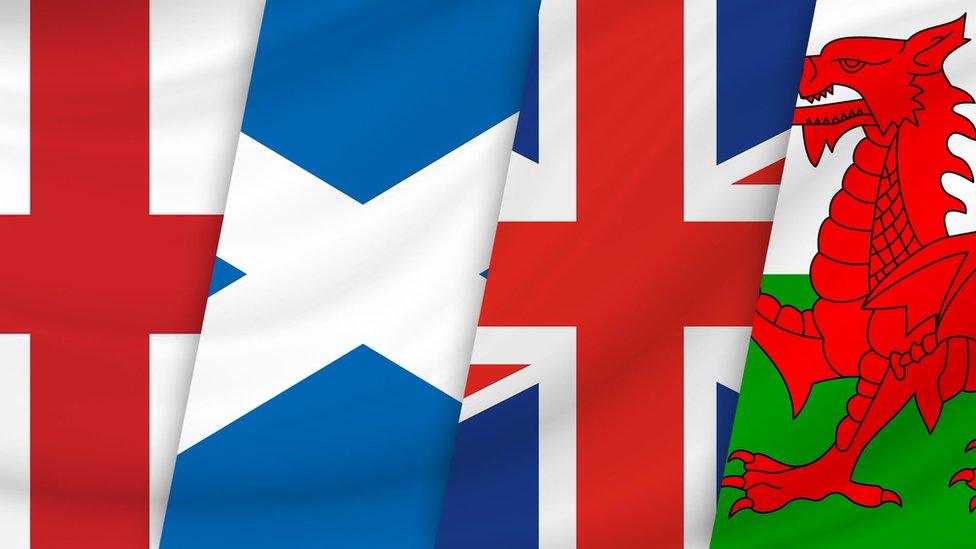
- Published10 January 2020
